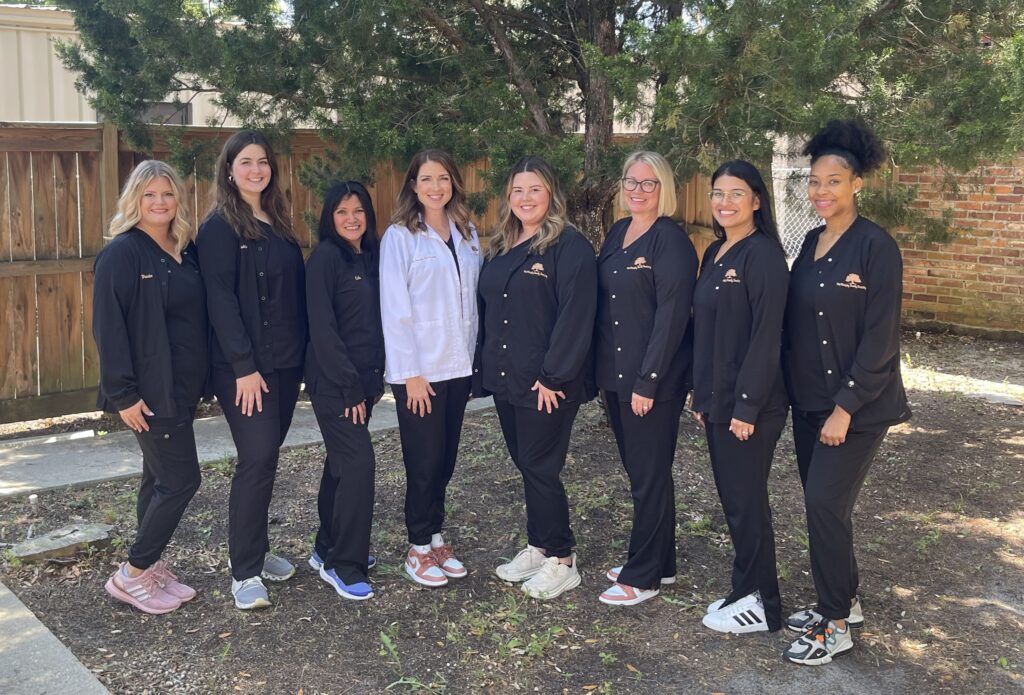Maintaining and Improving Dental Health Through Oral Surgery
If you’ve been to the dentist a time or two or taken your children or other family members to the dentist, you’ve likely heard the term “oral surgery” thrown around more than once. Oral surgery can be a confusing term, mostly because it can refer to a lot of different dental operations. Oral surgery is actually very simple and straightforward, with most types of oral surgery being accomplished in a few visits.
What is Oral Surgery?
But before we dive into the types of oral surgery, let’s define the term itself. According to A Consumer’s Guide to Dentistry, “This dental specialty (oral surgery) focuses on the diagnosis and
surgical and adjunctive treatment of diseases, injuries, and defects related to the functional and esthetic aspects of the face, mouth, teeth, and jaws.” Oral surgery simply refers to any type of surgical (treating a disorder or health condition within the body with the help of incision, manipulation, and the use of instruments) to address an adverse dental condition. Oral surgery is for far more complicated and concerning dental health conditions, such as salvaging a tooth that is in a serious state of decay, addressing congenital growth abnormalities, correcting an oral disease, addressing impacting wisdom teeth, treating trauma/impact-related damage, etc.
Oral surgeons differ from dentists and orthodontists, because oral surgeons specialize in going into the teeth, gums, and jaw to perform highly specialized surgeries, whereas dentists and orthodontists mostly work on the teeth, jaw, and gums from the outside, all without having to perform invasive procedures.
Common Types of Oral Surgery
To give some context as to what types of services fall into the field of oral surgery, let’s take a look at the types of surgeries that oral surgeons must be proficient in:
- Oral surgeons have to know how to remove impacted teeth, diseased teeth, and wisdom teeth, all while administering anesthesia.
- Oral surgeons must also be experts in forming and placing dental implants, usually following the removal of a diseased or damaged tooth.
- Oral surgeons must be experts in addressing facial trauma and damage to the teeth, mouth, gums, and jaw due to impact or trauma-related accidents and injuries. This is most commonly seen in oral surgeons who specialize in helping athletes who have been injured playing sports, or helping everyday men and women who have been injured in an accident of some kind.
- Oral surgeons need to also understand and be able to treat pathological diseases of the mouth, teeth, and gums, like as in the case of oral cancers and other illnesses. Such diseases and infections often require a surgical procedure to get to the source of the problem.
- Oral surgeons are competent in performing cosmetic surgery and reconstructive operations on the mouth, teeth, gums, and areas of the face affected by adverse health conditions within the mouth, teeth, and gums.
- Oral surgeons are adept at making surgical corrections to the jaws of patients, addressing skeletal and dental jaw irregularities to improve speaking, chewing, and even breathing. Oral surgeons use their skill in this area to perform a wide range of surgeries (usually working alongside an orthodontist). Oral surgeons often help patients with congenital conditions like a cleft lip or cleft palate.
Oral Surgery – Solving Complications with Decisive and Precise Dental Work
Oral surgery has a fair amount of negative stigma associated with it, primarily because of the word “surgery” and the types of feelings and emotions that that usually inspires in people. But the truth is, oral surgery is nothing like what we usually attribute surgery to. With oral surgery, we are able to have our dental conditions addressed in usually one to three visits, and there are no inpatient or overnight stays needed for this type of surgery!
Even for the more complicated of dental surgeries, the “three visit rule” is almost always applicable. We can usually bring ourselves or our family members in for a consolation/analysis visit. Then the second visits will be the actual surgery itself. Then a third visit is scheduled to ensure that the teeth, mouth, and jaw are healing properly and that there were no complications from the surgery itself.
Oral Surgery can be Beneficial for You and Your Family
We shouldn’t shirk the idea of oral surgery as being a viable option for improving our overall dental health and wellbeing. Sure, it can make us a little nervous to schedule an oral surgery, but we should recognize that getting the surgery and taking proper care of our bodies is always the right choice. And we should remember that oral surgeries are comfortable, quick, and effective!
Sources:
Oral Surgery Basics










